State laws vary widely regarding smart phone stun gun ownership, including age restrictions, device types, carry methods, and battery limits. Compliance is crucial to avoid legal issues. Age requirements often start at 18, with some states mandating IDs, self-defense courses, or waiting periods. Registration is typically needed after purchase, but open/concealed carry rules differ. Users must understand their jurisdiction's regulations regarding safety, legality, and self-defense to avoid risks and potential charges.
“Uncovering the legal landscape of civilian Taser ownership: A comprehensive guide to state laws. With the rise in popularity of self-defense tools, like smart phone stun guns, understanding your rights and responsibilities is crucial. This article explores the legal framework governing civilian Taser ownership, delving into state-by-state regulations, age restrictions, purchase processes, and use considerations. Whether you’re a concerned citizen or an avid enthusiast, this guide offers essential insights for navigating the legal aspects of stun gun ownership.”
- Legal Framework for Civilian Ownership
- State-by-State Regulations and Permits
- Age Restrictions and Eligibility
- Purchase and Registration Process
- Use and Liability Considerations
Legal Framework for Civilian Ownership
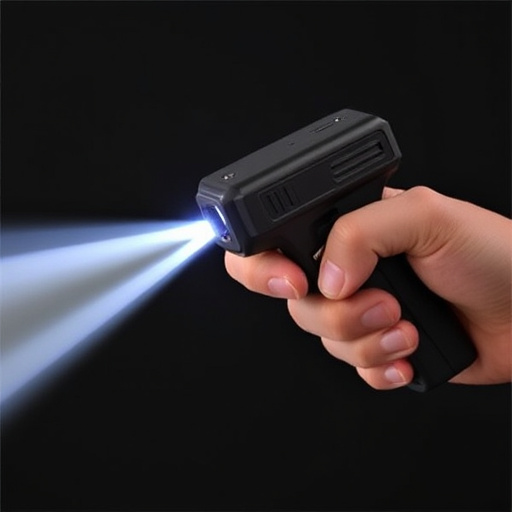
The legal framework governing civilian ownership of stun guns, often referred to as Tasers or smart phone stun guns, varies significantly across states in the US. While some states allow private citizens to own and carry these devices without a permit, others have stringent requirements. Typically, state laws dictate the age limit for purchase, the types of stun guns permitted, and whether open or concealed carry is allowed. Some states also impose restrictions based on the capacity of the device’s battery or the voltage output.
Understanding these regulations is crucial before considering the acquisition of a smart phone stun gun. Navigating the legal landscape ensures compliance with local laws and prevents potential legal repercussions. As with any self-defense tool, it’s essential to remain informed about your rights and responsibilities to make an informed decision that aligns with the rules governing civilian ownership in your state.
State-by-State Regulations and Permits
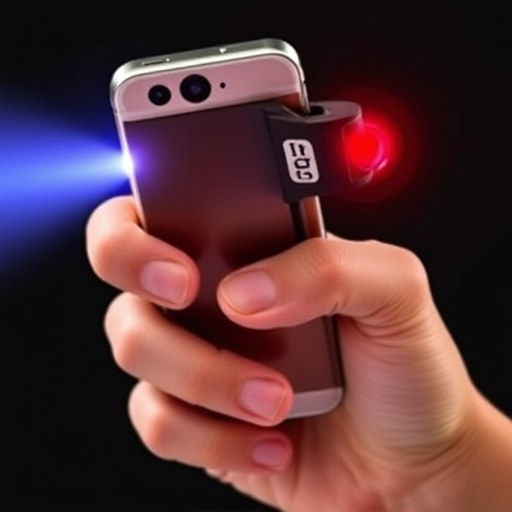
Each state in the US has its own set of regulations and requirements for civilian ownership of stun guns, including smart phone stun guns. These laws can vary widely from one state to another, affecting everything from the types of devices allowed to the age restrictions on purchase. Some states have very liberal regulations, allowing open carry or concealed carry with minimal licensing, while others are much stricter, mandating permits and specific device registration.
Understanding these state-by-state regulations is crucial for anyone considering owning a stun gun. Beyond basic laws, some states have unique requirements, like waiting periods, background checks, or specific training mandates. For instance, certain states require individuals to complete a certified self-defense course before purchasing a stun gun. Always check with your local law enforcement or legal authorities to ensure compliance and avoid any penalties related to unauthorized possession.
Age Restrictions and Eligibility
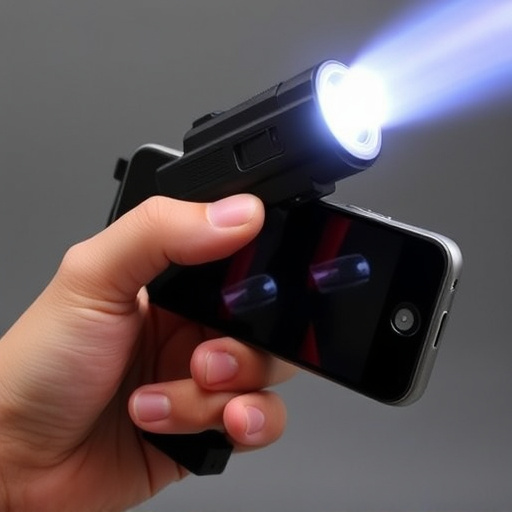
In many US states, there are strict age restrictions on purchasing a stun gun or Taser, similar to those for firearms. Most require individuals to be at least 18 years old, with some states setting the bar even higher at 21 or 25. These regulations are in place to ensure responsible ownership and prevent the device from falling into the hands of minors, who may not fully comprehend the potential risks and consequences.
Beyond age, certain eligibility criteria vary across states. Some require a valid driver’s license or ID, while others may demand proof of completion of a certified self-defense course or training in the safe use of stun guns. Additionally, individuals with prior criminal records or those under supervision for a crime might face restrictions on owning a Taser or stun gun, as these devices are not intended to be used as weapons of self-defense in all circumstances.
Purchase and Registration Process
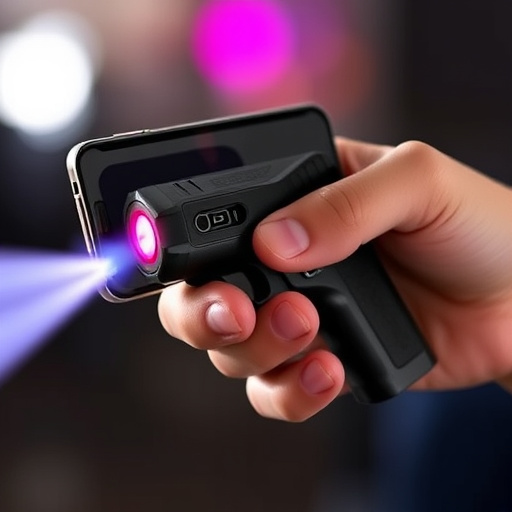
In most states, civilians looking to purchase a stun gun, including sophisticated smart phone stun guns, must adhere to stringent legal requirements. The initial step involves researching and selecting an approved dealer from whom to make the purchase. Once a trusted vendor is identified, the buyer can opt for a wide array of models, powered by electric current or chemical reactions, each with varying voltage levels and features.
Post-purchase, registration becomes imperative. This process typically entails filling out official forms with personal information and submitting them to the relevant law enforcement agency or state department. Successful registration grants the owner legal permission to carry their stun gun, though specific rules regarding concealed or open carry vary from one jurisdiction to another.
Use and Liability Considerations
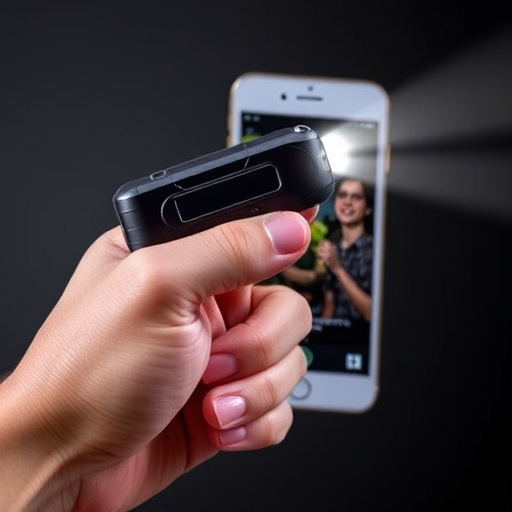
The possession and use of a stun gun, even for civilian self-defense, come with significant use and liability considerations, especially when compared to more traditional firearms or even Smart Phone Stun Guns. These devices emit an electric current designed to temporarily incapacitate a target, but their application is not without risks. The primary concern lies in the potential for accidental discharge, which can lead to unintended harm or even legal repercussions if used inappropriately.
Liability issues also extend to the interpretation of self-defense laws under state jurisdictions. While some states allow for the use of force, including stun guns, in certain circumstances to protect oneself or others, the specifics vary widely. Misjudging a situation or using excessive force can result in civil lawsuits and criminal charges. It’s crucial that individuals considering carrying a stun gun, like a Smart Phone Stun Gun, understand their state’s laws regarding use, reasonable force, and liability to ensure they remain within legal boundaries while protecting themselves or others.
Understanding the legal framework surrounding civilian Taser ownership is essential for those considering protecting themselves with a smart phone stun gun. Each state has its own regulations and permits, with age restrictions and eligibility criteria that must be met before purchasing and registering one of these devices. It’s crucial to follow the proper use and liability considerations to ensure safety and legal compliance. By staying informed about your rights and responsibilities, you can make an educated decision regarding civilian Taser ownership.
